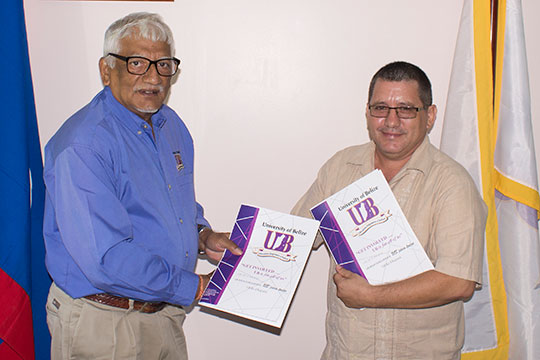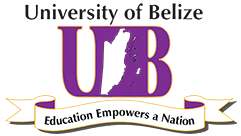The University of Belize through the Natural Resource Management Program from the Faculty of Science and Technology and the World Wildlife Fund (WWF), will develop a Management Plan for the Belize River Watershed (BRW). The plan will be the first of its kind in Belize and serves as a model for much needed future watershed management.
The project will take a multidisciplinary approach in collecting and consolidating data pertaining to the Belize River Watershed. Through scientific research, stakeholder consultations and community engagement, a sustainable management plan will be produced by identifying long-term monitoring programs and bolstering policies for the protection of Belize’s freshwater resources. This project will also support data collection and finance three (3) student research fellowships along with the purchase of areal monitoring device and laboratory equipment.
The University President Professor Clement Sankat was joined by Mr. Mauricio Mejia, WWF Representative to sign the formal agreement that supports this project, at the University of Belize. Faculty Dean Juliane Pasos, and the Technical Team of the project: Dr. Abel Carrias, Dr. Pio Saqui, Mr. Josue Ake, and Mr. Antonio Cano were also present.
The University of Belize embraces the opportunity to develop this management plan as it epitomizes its mandate as a catalyst for change through quality education, research and service. According to UB’s President Professor Clement Sankat, “Belize is a country that is committed to the preservation of its pristine natural environment, both terrestrial and marine, and to the sustainable development of its society. The availability of water, both its quantity and its quality, is essential for all forms of life and this project will provide the kind of data on the Belize river, its catchment areas and the communities it serves for developmental planning- physical, economic, sociological and ecological. The staff and students of the FST must be commended for initiating this applied research work and the WWF for providing needed funding”.






